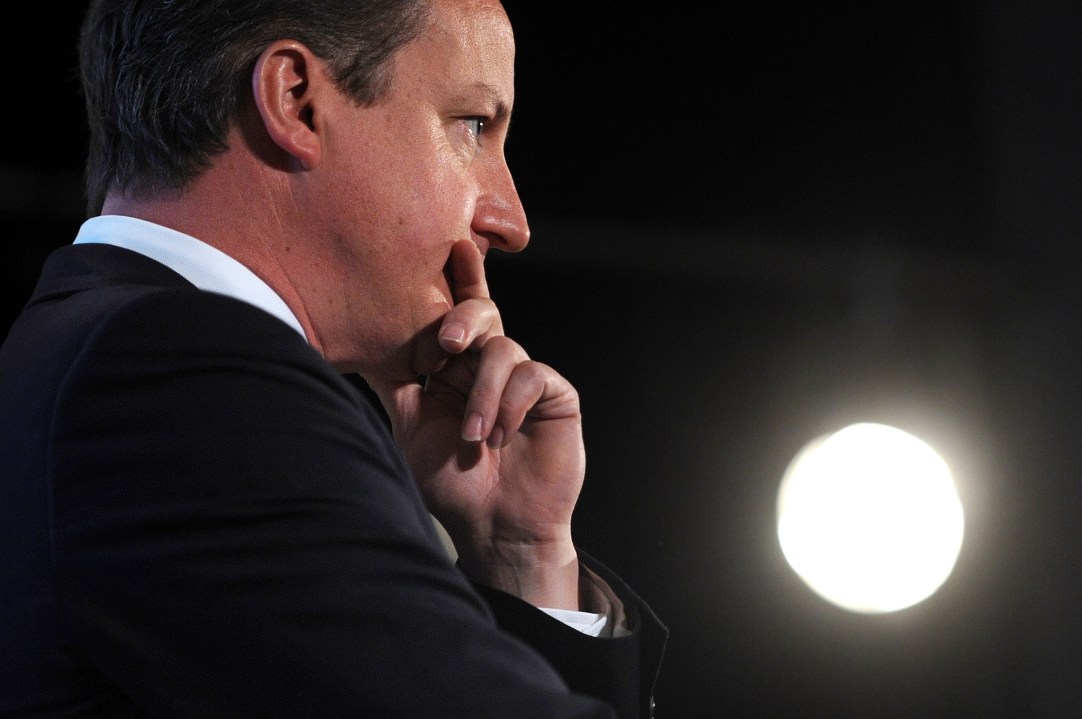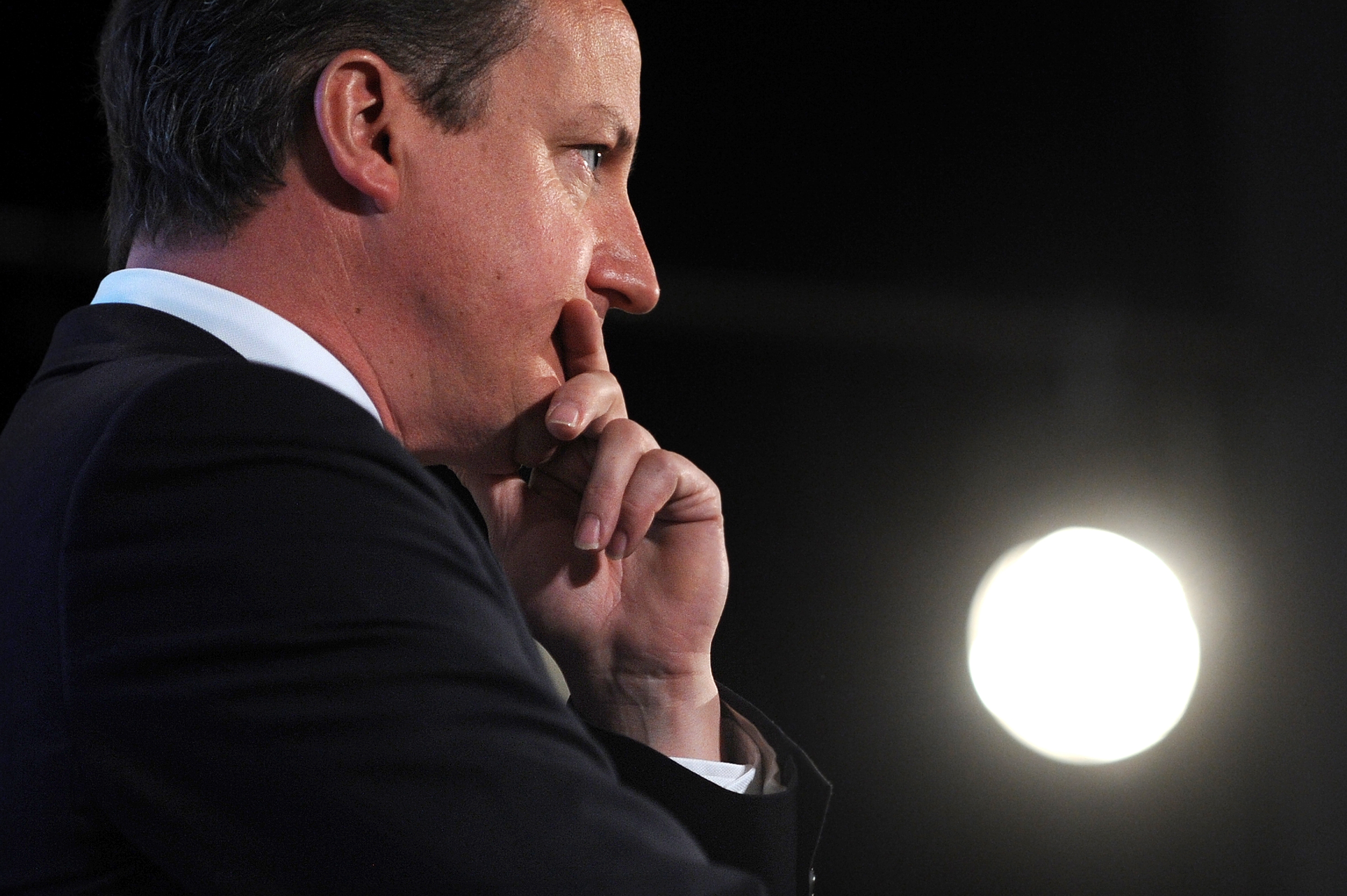 There’s been plenty political drama in these past few weeks, but the most crucial
agenda – and by some margin – is Iain Duncan Smith’s proposed overhaul of welfare. It doesn’t deserve to be categorised as just another political tussle. As I say in the
News of the World today, it is easily the most important issue in
Britain, and it is overlooked because of an affliction which most of our political class suffers: that of moral long-sightedness. No one wears wristbands for the British poor, Prime Ministers
pledge to “eradicate illiteracy” in Africa yet are strangely indifferent to the
illiteracy on our own doorstep. The plight and lives of people on benefits, and
the one-in-six children who live in workless households is somehow a deeply unfashionable one.
There’s been plenty political drama in these past few weeks, but the most crucial
agenda – and by some margin – is Iain Duncan Smith’s proposed overhaul of welfare. It doesn’t deserve to be categorised as just another political tussle. As I say in the
News of the World today, it is easily the most important issue in
Britain, and it is overlooked because of an affliction which most of our political class suffers: that of moral long-sightedness. No one wears wristbands for the British poor, Prime Ministers
pledge to “eradicate illiteracy” in Africa yet are strangely indifferent to the
illiteracy on our own doorstep. The plight and lives of people on benefits, and
the one-in-six children who live in workless households is somehow a deeply unfashionable one.
Jo Moore, the former Labour spad, had a point when she said “there are no votes in the poor”. Sorting welfare comes at a political cost – and for what? Helping a bunch of people who
tend not to vote. Far easier to shovel money at the poor, and leave them in decaying council estates. For too long, the Tories thought that poverty was somehow Labour’s territory. Labour had
its own blindness: pouring money in the welfare ghettoes, as if this would solve the problem. Both overlooked the essential Beveridge insight: that idleness (as opposed to claimant unemployment) is
a “giant evil”. This is the key insight behind the “broken society” agenda that David Cameron has adopted.
The IDS agenda, as developed by the Centre for Social Justice, is the most thought-through solution to this problem. When he was sent to the DWP, it created perhaps the best chance we will have to
sort this. Welfare reform is exhausting, but in IDS we Have someone for whom welfare reform is his last job in politics: he’ll either do what’s necessary, or resign. He has no interest in
pretending to fix the system, as Peter Hain did. His discussion paper came out on Friday with four options. The first is the Universal Benefit, an idea which – when it was first born –
became a cover story for The Spectator. There are three lesser options, which reflect varying
degrees of cop-out. The winner will be decided in a White Paper in November, and it will be a test of this government’s commitment to fixing that ‘broken society’.
The analysis is simple, and was made clear by an excellent Taxpayers Alliance video (see below). If welfare pays more than work, why work? The Centre for Policy Studies recently calculated a
scenario where a woman who does extra work get to keep just 4.5p in the pound of what she earns (pdf here) due to taxes
charged and benefits withdrawn. This should cause outrage, and would if our political class were more interested in policy. (The ‘let them eat tax credits’ approach of Labour left
reflects an interest in ideology, not policy or people.) IDS says this should be at least 40p in the pound. Simples. You just replace this overlapping web of benefits with a single clear structure
which will sweep away every welfare trap.
This basic failure lies behind so many social problems we have today. Why do we have so many immigrants? Because welfare makes it not worth the while of millions of British people to work. Why did
Britain never have fewer than a scandalous five million on the dole in the Labour years? Same reason.
What’s the common thread running through our social horror stories like Karen Matthews and most instances of
knife-crime? The key players tend to live in welfare ghettoes, walking the road to dependency paved by the welfare system. Beveridge chose the words “giant evil” advisedly. To fight
this evil, ensure that work actually pays – for everyone. What IDS is proposing is amazingly simple, and has transformative potential.
The Treasury is opposing it, partly because it say it can’t afford to cut tax for the low-paid. IDS argues, basically, that if a woman is getting up at 4am to clean offices then she is
entitled to keep every penny of what she earns. That’s a moral argument. But, economically, if we don’t make it worth her while to earn then she’ll choose dole instead –
which will be much more expensive in the long run. The Treasury is institutionally blind to such maths and, crucially, blind to the immigration problem. It doesn’t care who takes jobs, as
long as it gets NI and PAYE revenues. It hasn’t worked out that mass immigration has broken the link between UK dole and UK jobs. Failure to understand this means failure to understand the UK
labour market. Morally and economically, the Treasury officials have it wrong.
But, more broadly, opposing change is what the Treasury does. Cameron has inherited raging Whitehall wars: the Treasury was always shafted by the Department for Education under Balls (who’d
always go straight to Brown) and so it wants to wreak revenge on the DfE. Also under Brown, the Treasury decided welfare policy and the DWP just doled out cash to claimants. The Treasury,
institutionally, is upset that the DWP is now setting policy, and wants these upstarts put in their place. The behaviour of Treasury officials is hardly inspired by Osborne, who is supportive of
the IDS agenda and argued for his appointment. And Cameron is dismayed at all these ongoing Balkan-style wars within the government he has inherited. His thinking is that he’ll give the civil
servants a few weeks to calm down, and realise that they are now working for a government of “functioning adults” (as Patrick Wintour described the coalition, contrasting it with Labour). If they’re still
misbehaving in October, it will be time to bang some heads together. And, whisper it, sack civil servants whose sectarian freelancing frustrates the progress of government.
To uproot the poisoned tree of Brownism and to support the reforming agenda that this coalition government has so boldly adopted – one needs to do some plumbing. Brown had his power by
being the Gollum of Whitehall, living in its back passages. The superficial Blair could never be bothered going down to such detail, which is why Brown always beat him. Cameron needs to find
someone who is willing to do three things. 1) Work out where all the civil service antagonism is coming from, 2) Work out what nature it takes, and 3) Enact remedies.
The antagonism is down to old turf wars. This can be remedied by moving people around into new departments (DfID has been so deeply politicised for so long that it may need an 80 percent staff
turnover to make it a normal government department). The nature of the opposition is dodgy assumptions – or what I call policy-based evidence-making. The Treasury, for example, claimed the 50
percent tax raises money by using a false assumption for elasticity rates of high-income taxpayers. The Stern Review managed to fake climate change economics by using an almost fraudulently low
discounting rate (as Tim Worstall spotted – Fleet St didn’t). The civil servants think,
correctly, that the ministers never cotton on to such sleights of hand. The only defence ministers have against this is special advisers who are genuine experts, and can spot a trick pulled by the
civil service. Cameron’s lack of special advisers makes his government especially vulnerable to being misled by government departments.
The civil service’s instant reaction is to stop reform. The Treasury was taught, under Brown, to crush any ideas that it did not produce. This is how it still thinks. This is what IDS,
Michael Gove, Nick Herbert and even Andrew Lansley must overcome if they are to reform. They will achieve nothing without covering fire from David Cameron in No10.
As CoffeeHousers know, I have huge respect for the Blair reformers. John Hutton, Alan Milburn, John Reid, James Purnell, Andrew Adonis and Jim Murphy were serious, well-intentioned ministers who
gave their all. Cameron should ask: why did they fail? They had Blair’s No10 behind them. The answer is not, simply, because Brown was there and now he’s not. There is institutional
inertia. It’s a shame, in a way, that British government (unlike the American one) has lawmaking powers – because that puts too much focus on legislation. A Prime Minister changes
Britain by mastering the Leviathan which is the government machine – not by passing new laws. Cameron will be judged on this.
One final point. Obama is in trouble because he has presided over a jobless recovery. If Cameron’s economic recovery simply serves to suck in more immigrants – because British people
have no incentive to take jobs for 4.5p in the pound – then he will have failed as Prime Minister and be punished for it. We have 5.9 million people claiming out-of-work benefits right now – more than the entire populations of Denmark, Finland, Singapore, Ireland or New Zealand. A quarter of Liverpool, Glasgow, Blackpool are on the
dole (full list here). Look at the chart below: a quarter of our great cities, on the dole.

When a quarter of people were on the dole in the 1930s, we called it a Great Depression. Now, we just shrug and say that life is tough. Somehow, sometime, we became inured to this giant evil of
idleness. And didn’t think it strange how immigrants flocked to these cities to find the jobs that we’re paying locals not to take.
In failing to fix welfare, Labour oversaw a situation where – as CoffeeHouse revealed – 99 per cent of the new jobs were accounted for by immigration. Welfare reform takes years. A
Universal Benefit would require new monthly employers’ reports – it’s the cornerstone to the whole
system. But even if that goes ahead, it probably wouldn’t start until April 2012. If Cameron wants any results in 2015, he needs to start now. The question is simple: how serious is he about
fixing this broken society? In the next few months, we’ll see.
UPDATE: A response to some of your comments. whatawaste, the jobs are there – almost half a million vacancies at the moment. David Hatfield, IDS is that rare thing: a minister who has prepared for this job for years. And he has excellent advisers. davidk says this would be “suicide” and Cameron knows it – so he will (like Blair) kick it into the long grass. I disagree: Cameron said on R4Today last Wednesday that immigration is linked to welfare. First time I can remember him saying this. And I believe he is genuine about wanting to help the poor, votes or no votes. I know many CoffeeHousers are sceptical about his reserves of political resolve, but I really do have faith in him over this. What’s the point of being PM if you can’t change something like this? TGF, give Cameron time. Why go to war with them right now? He knows they’re still winding down from the sectarian Labour years – if they’re still misbehaving in October, however. Jason, I agree that the rot (especially with regards to incapacity benefit) set in under Thatcher, and that the ‘good guys’ in this debate can be found scattered across all three parties.








Comments